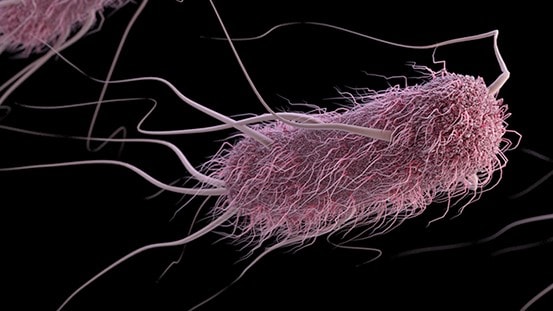Key points
- E. coli are bacteria found in many places like the intestines of people and animals.
- Most kinds of E. coli are harmless, but some can make you sick.
- This site focuses on the kinds of E. coli that cause diarrhea.

Overview
E. coli are germs called bacteria. They are found in many places, including in the environment, foods, water, and the intestines of people and animals.
Most E. coli are harmless and are part of a healthy intestinal tract. E. coli help us digest food, produce vitamins, and protect us from harmful germs.
But some E. coli can make people sick with diarrhea, urinary tract infections, pneumonia, sepsis, and other illnesses. This website focuses on the kinds of E. coli that cause diarrhea.
People can get infected after swallowing E. coli.
This can happen through contaminated food or water or contact with animals, environments, or other people.
Some people are more likely to get infected.
Groups of people who are at increased risk for E. coli infection include:
- Children younger than 5
- Adults 65 and older
- People with weakened immune systems
- International travelers
E. coli infection can be serious.
Infection with Shiga toxin-producing E. coli (STEC) can lead to a serious health condition called hemolytic uremic syndrome (HUS). HUS can lead to kidney failure, permanent health problems, and even death.
E. coli infection can be prevented.
The good news is that you can take steps to help keep yourself and your family safe.
